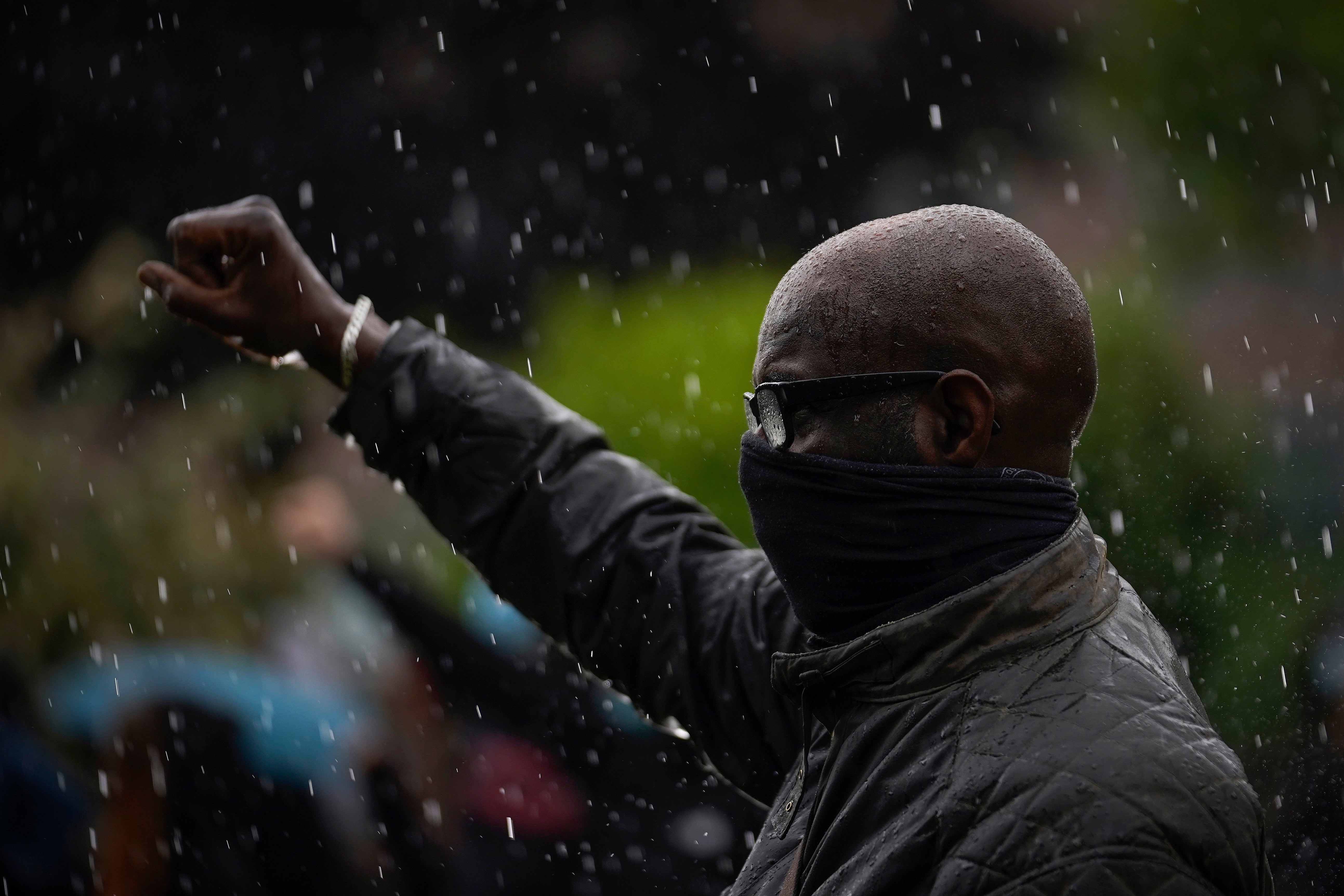Just one in five think PM kept promise during BLM protests to address racism
More than half of ethnic minority Britons say they have experienced or witnessed racial abuse in the past year

Your support helps us to tell the story
From reproductive rights to climate change to Big Tech, The Independent is on the ground when the story is developing. Whether it's investigating the financials of Elon Musk's pro-Trump PAC or producing our latest documentary, 'The A Word', which shines a light on the American women fighting for reproductive rights, we know how important it is to parse out the facts from the messaging.
At such a critical moment in US history, we need reporters on the ground. Your donation allows us to keep sending journalists to speak to both sides of the story.
The Independent is trusted by Americans across the entire political spectrum. And unlike many other quality news outlets, we choose not to lock Americans out of our reporting and analysis with paywalls. We believe quality journalism should be available to everyone, paid for by those who can afford it.
Your support makes all the difference.Less than a fifth of Black, Asian and minority ethnic people in Britain think Boris Johnson has kept his promise to address racism made at the height of the Black Lives Matter (BLM) protests in the UK, according to a new survey.
The State of Hate 2022 report from Hope Not Hate (HNH) also found more than half of ethnic minority Britons (52 per cent) said they have experienced or witnessed racial abuse in the past 12 months alone.
The survey is based on a sample of 1,082 ethnic minority adults in the UK between 17 December 2021 and 4 January 2022.
Meanwhile, the HNH poll found two in four people (43 per cent) experienced or witnessed racial discrimination in the workplace in the last year, while just under half had experienced racial discrimination from a public institution.
This contradicts the findings of the government-approved Commission on Racial and Ethnic Disparities (CRED), which produced a widely-contested report last year concluding that Britain does not have a problem with systemic racism.
Back in 2020, Mr Johnson addressed racism felt by Black and minority ethnic people in the UK at the height of the BLM protests, sparked by the murder of George Floyd, a Black man in the US who was killed by serving white police officer Derek Chauvin.
The injustice sparked international demonstrations, with many people taking the streets in solidarity with Mr Floyd’s family, fuelled by a sense of outrage at systemic racism around the world.
Speaking in June 2020 in a video shared online, Mr Johnson promised to address racism and said people “who lead and govern” cannot ignore the feeling from people in Black and minority ethnic groups that they do face discrimination.
He added: “You are right, we are all right, to say Black Lives Matter; and to all those who have chosen to protest peacefully and who have insisted on social distancing – I say, yes of course I hear you, and I understand.”
After it emerged just 17 per cent of people surveyed in the HNP report believe Mr Johnson has addressed racism since June 2020, senior policy officer Rosie Carter said: “It is clear that when communities are listened to, the premise in the Commission’s report that the UK should be seen as an international exemplar of racial equality, and that issues of race and racism are becoming ‘less important’ in explaining social disparities, is even more of an insult to those who experience racism.”
The anti-racism organisation’s report also found that politics is deemed to be more divisive than ever.
It found that far right terrorism convictions have increased by 50 per cent since 2020, while more than two-thirds of the British public think the UK is “going in the wrong direction”.
A mixture of political distrust, the pandemic, growth in conspiracy beliefs and the cost of living crisis has created “fertile ground” for the growth of right-wing ideas and its increasing influence on more mainstream political and media narratives, it said.
Nick Lowles, CEO of HNH, said: “After years in the political wilderness, the crises we’ve collectively faced over the past two years have emboldened cynical far right activists to exploit our fears and uncertainties and return to traditional methods of campaigning.
“In 2021, we saw far right activists marching on our streets, leafleting, and now they are preparing to stand in local elections. What we’re looking at is a country that has moved on from Brexit, which marginalised the British far right, and the fallout from an erosion of political trust.
“The threat is real - the far right is stirring again, but there is still hope. While they have more opportunities to exploit discontent than for many years, we can still prevent them from succeeding.”
Join our commenting forum
Join thought-provoking conversations, follow other Independent readers and see their replies
Comments